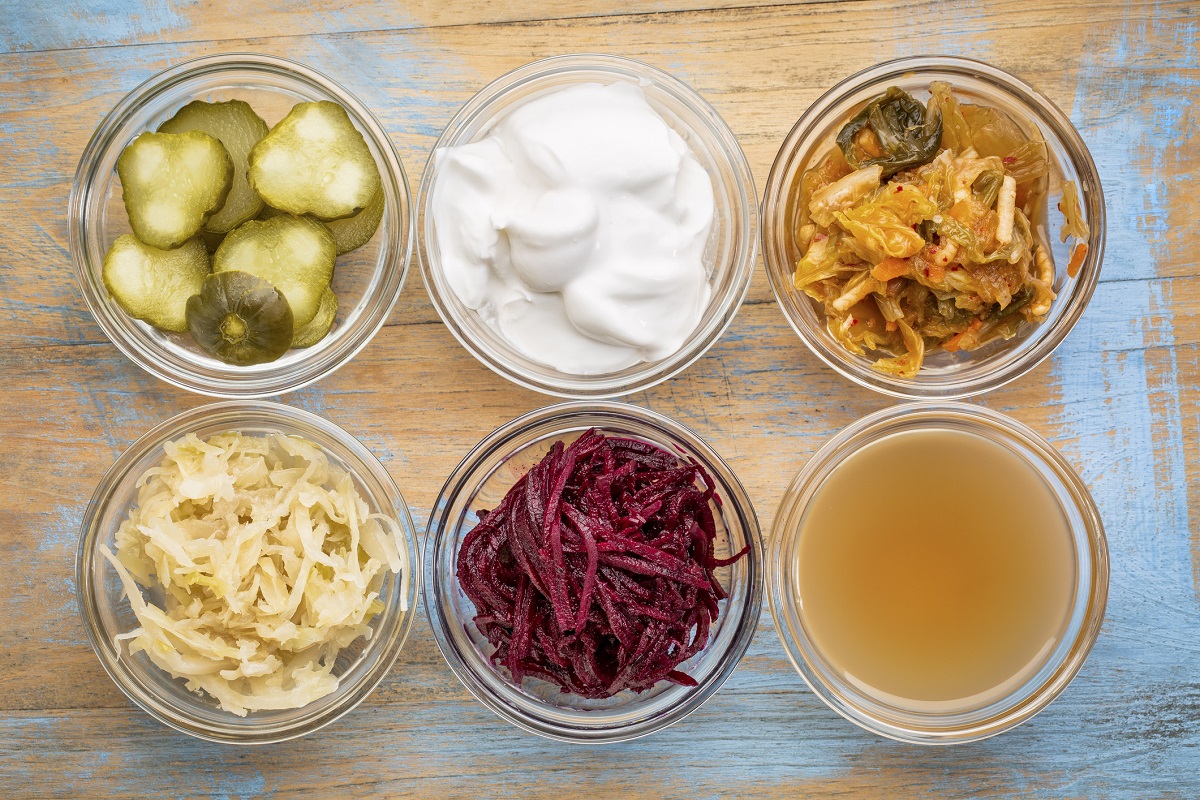Six Benefits of Probiotics
by Stephanie Koathes Aug 19, 2019

Probiotics are certain good bacteria found in food or supplements.
Aged cheeses and fermented foods such as yogurt, kombucha, pickles, sauerkraut, and miso contain probiotics.
Getting probiotics into your system through the consumption of fermented foods or supplements can offer you several benefits.
Here are six benefits of probiotics.
Balance your gut
Our digestive systems are a complex balance of good and bad bacteria. Poor diet, antibiotics, and illness are a few of the culprits that can throw off that balance leading to too many harmful bacteria and not enough good. Taking probiotic supplements or eating foods rich in probiotics can restore the levels of good bacteria in your gut, helping to ease digestive problems.
Yeast infections
The good bacteria found in the vagina usually makes the environment too acidic for harmful microorganisms to survive. However, the vaginal ecosystem can be thrown out of whack by antibiotics and spermicides, among other things. When this happens, there are not enough good bacteria to keep other bacteria in check, and a yeast infection may develop. If you have a yeast infection, probiotics may be useful in restoring the balance of microbes, thereby easing the symptoms. Look for probiotics that contain Lactobacilli.

Combat upset stomach due to antibiotics
Antibiotics quite often can lead to stomach upset such as diarrhoea. Getting some probiotics into your system through foods or a supplement can help to reduce the severity of diarrhoea caused by antibiotics. Probiotics might even prevent it altogether. If you have diarrhoea caused by something else, probiotics can still help. The probiotic strains most associated with diarrhoea relief are Bifidobacterium bifidum, Lactobacillus acidophilus, and Saccharomyces boulardii.
Helps you be more regular
If you have a problem going to the bathroom regularly, you might want to try adding probiotics into your routine. Probiotics may increase the frequency of bowel movements and make them softer, making it easier for you to go. According to a study published in the American Journal of Clinical Nutrition, for constipation relief, probiotics containing the strain Bifidobacterium seemed most effective.

May improve brain function
There is a connection between the gut and the mind. Science call this the gut-brain connection. Think about it, when you’re nervous or anxious, where do you feel it? In your stomach. The state of your gut may also impact your mental state. Studies have indicated that consumption of probiotics might help to improve cognitive function. A 2016 study published by Frontiers in Aging Neuroscience compared two groups of Alzheimer’s patients. Over 12 weeks, one group was given milk made with four strains of probiotic bacteria, while another was given regular milk. At the end of the 12 weeks, the patients who drank the probiotic milk scored better on a test measuring cognitive impairment.
Boost immune function
Probiotics could potentially stimulate your immune system thanks to the community of good microbes they cultivate in the gut. A strong immune system is the first line of defence against infection. However, those who have auto-immune disorders, are seriously ill or have just had surgery should not use probiotics.
Remember to always consult your doctor before taking any new supplements. This article is intended for informational purposes only and is not a substitute for medical advice.








